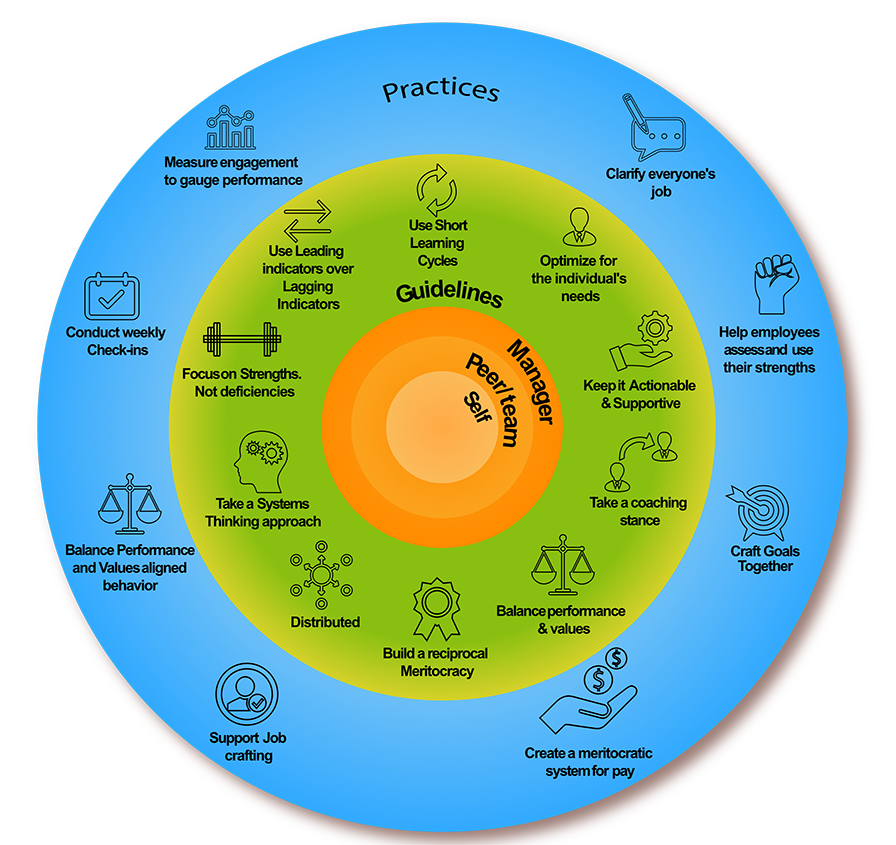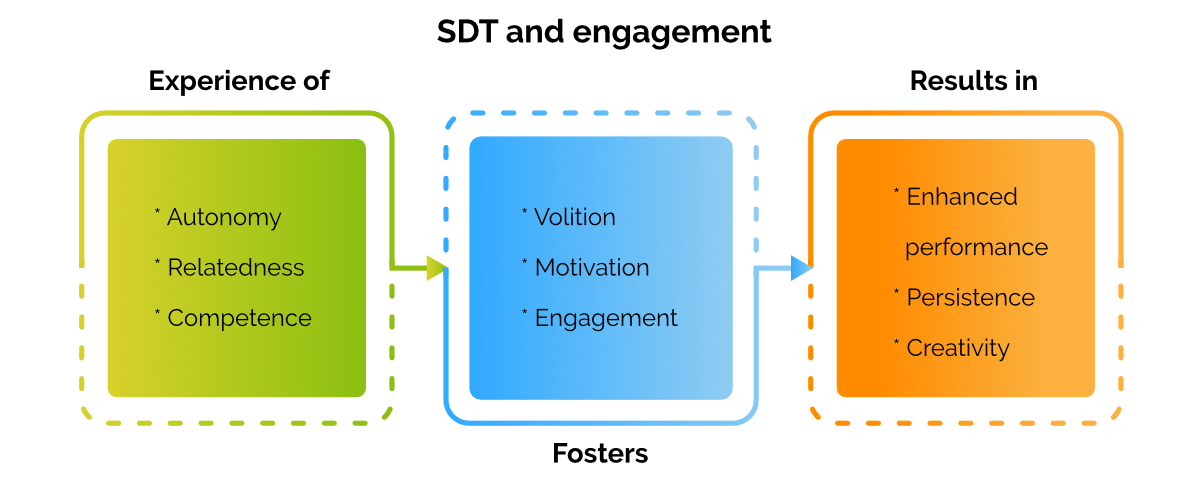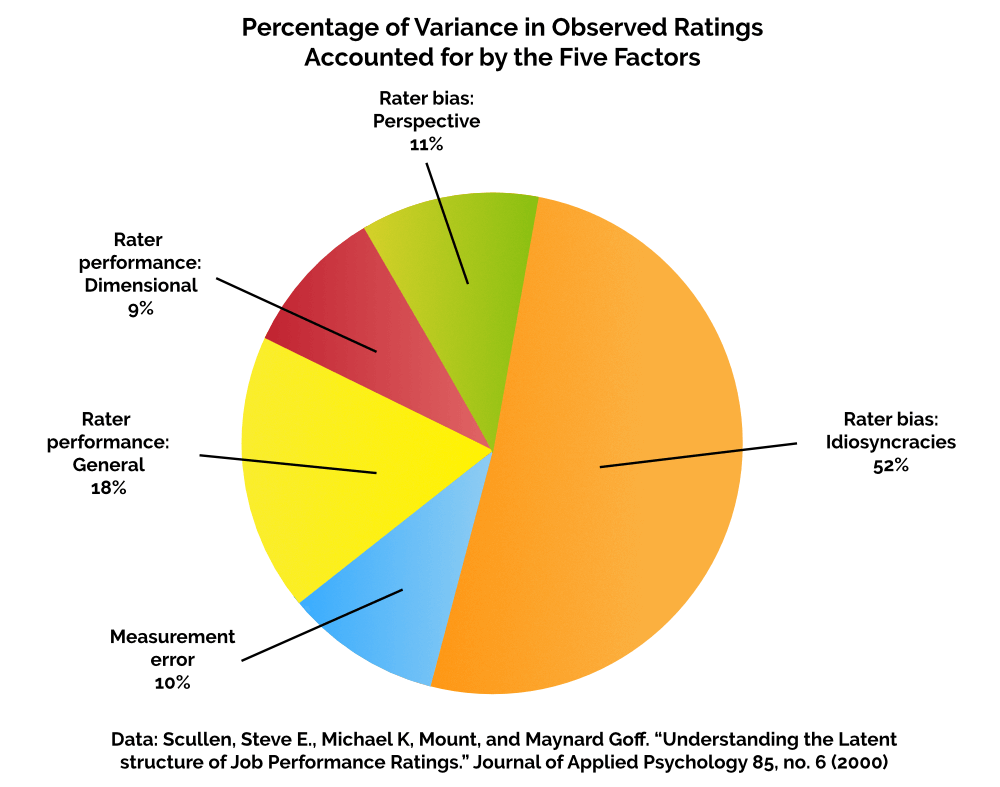Adaptive Performance Management (APM)
Achieve perfect synergy
between employee engagement and company results
[thrive_2step id=’33377′]
[/thrive_2step]Learn how to reinvent your performance management system to make your organization more adaptive
“In today’s complex and fast changing world your people are your most valuable assets.
If you know how to unlock that value…”
These are challenging times
We live in a world of increasing complexity and fast paced change. The business graveyard is filled with once seemingly rock solid names. A sustainable competitive advantage seems to have all but disappeared. Competition comes from unexpected places.
People are the answer to these challenges. In contrast to machines people can deal with unexpected challenges, cope with unpredictable outcomes, think out-of-the-box, deal with change, and discover novel solutions.
There’s just one problem: They are not engaged.
%
Only 13% is engaged
%
63% is NOT engaged
%
24% is actively disengaged
“Our organizations are not designed for engagement.
They are build for compliance”
Adaptive Performance Management
Blended Learning Online Course: Learn at your own pace. Interact when you want to.

Learn to unlock stellar performance by building your performance managent on engagement
What do you get in this course?
Learn anywhere, At your pace
Take the course at your convenience at your pace. Anytime. Any place. All you need is a pc or a tablet. And an open mind.
Life long access to the course
Buy once and enjoy life-long access to the course and community. All future updates included. Your initial investment will only become more valuable in time.
Interact with your instructor
You can always contact your course instructor. Ask questions. Bounce off ideas.
Join a community of likeminded
Make connections with other students. Get support. Build valuable long-lasting relationships with like-minded people from all over the world.
What will you achieve in this course?
After this course:
You know the fundamental flaws of today’s performance management systems
You know how to use engagement as leading indicator for performance
You know how to unlock engagement, to attract and retain talent
You know how to help employees assess and use their strengths
You know how to use short learning cycles for continuous improvement
You know how to build a compensation system based on merit rather than position
You are able to balance performance and company values
You have discovered the power of weekly check-ins
Get up to speed with a novel & proven approach to managing performance in your your organization. Get your employees ready for anything.
[thrive_2step id=’33377′]
[/thrive_2step]Don’t manage the people. Manage an environment around three basic psychological needs:

AUTONOMY
Autonomy is the need to self-regulate our actions in a way that allows our behavior and values to be aligned. Many organization experiment with this. Few are succesful. Learn the principles, pitfalls, and practical tools to master empowerment.

RELATEDNESS
Everyone has a need to care for and be cared for. Everyone wants to be able to contribute to a larger cause, and wants the be accepted for who they are. Learn novel practices to turn this into a win-win for organization and employees alike.

COMPETENCE
Everybody wants to be good at something and challenged within the boundaries of one’s competence. Continuous learning is crucial because skills and competences are volatile nowadays. Today’s skills are obsolete tomorrow.
Rating systems measure the rater more than the ratee
Most organizations have some kind of system to rate their employees. Salary increases, promotions, bonuses all depend heavily on how people perform according to the rating process.
There’s just one problem: the data is extremely unreliable. Over 50% of the variance in ratings is caused by idiosyncracies between raters. In other words: the rating tell us more about the raters than the one who are being rated!
APM is not based on rating how people stack up against each other. It does not try to measure and remedy deficiencies.
Instead its based on supporting strengths and molding jobs around them. It banks on unlocking engagement which in turn inherently drives performance. It is optimized for individual needs instead of using a central one-size-fits-all system. It’s actionable and supportive.

APM focuses on strengths. Not deficiencies.
Let us inspire you!
10 issues to solve
In Adaptive Performance Management we have identified ten fundamental flaws in traditional performance management practices.
9 GUIDELINES TO INSPIRE YOU
Our guidelines are here to inspire. They outline fundamental criteria for a system that supports organizations to become more adaptive with enough room for maneuvering your local context.
8 PRACTICES TO START WITH
The practices provide carefully designed concrete tools and processes you can use to jump-start your organization’s performance management system. You can and should adapt them to your local context.
Okay… criticizing current performance management practices is perhaps the easy part. How to do better is the challenge. A challenge we wholeheartedly embrace.
The APM model contains powerful guidelines and practices. Guidelines are fundamental and immutable. They are the same for every organization but how you implement them heavily depends on your local context.
The practices are based on the guidelines and provide default ways to implement the guidelines. However, fee free to tune them to your organization’s needs.
APM is is based on some fundamental principles: One is that performance is rooted in employee engagement and that engagement is a leading indicator for performance.
Second, performance management should not be based on remedying deficiencies but on supporting strengths.
Third, performance management should not be based on a central system of ratings, but rather of local and individual support and coaching from management.

Modules we cover

Fundamental flaws of traditional performance management
Many traditional performance management practices don’t really match today’s needs anymore. We will discover the most fundamental flaws in-depth.
For example, most systems tend to look backwards instead of forward. They are not very actionable. They are judgmental, rather than supporting. They measure the rater more than the ratee. And they don’t really support personal growth.

APM Guidelines
Our guidelines explain criteria for modern performance management without dictating how it should work specifically. You will learn how to use leading over lagging indicators; how to use short learning cycles; how to optimize performance management for individual needs; how to be actionable and supportive; how to take a coaching stance as a manager; how to focus on the strengths of your people; as well how to balance performance and values.

Measure engagement to gauge performance
It might sound counter intuitive and wrong to many if we suggest that to measure performance you shouldn’t measure performance in the first place, but engagement instead. There are important beliefs you might need to overcome.

Clarify everyone’s job
Job clarity is one of the most important aspects of supporting your employees. This involves a couple of different topics starting with helping them to understand why there job matters in the grander scheme of things.
Being able to control how to fulfill your job is an important supporting driver in which you need to support employees.
Knowing how one’s job matters to someone else is a very strong motivator because the effect is so direct and visible.
Little is less motivating than not knowing how well you are doing. Feedback on progress is crucial but is even stringer if you empower employees to measure their own progress.

Help employees assess and use their strengths
Adaptive Performance Management does not evolve around assessing and judging people but around supporting them. Adaptive performance management is strengths.
In this course you learn how to help employees identify their strengths. Next we will cover how you can support them to use their strengths in their jobs. We will also cover how teams can use the strengths of their members to build a stronger team.

Balance Performance and Values aligned behavior
Most organization do define core values. But push comes to shove, it is hard performance we measure and value. That won’t fly anymore in APM. Good performance can not be used to excuse bad values aligned behavior. You need to balance performance and values aligned behavior.
We will cover powerful strategies to deal with this.

Goal crafting
Settings goals still remains important in Adaptive Performance Management. But we will cover how to set and use goals in a more effective way. You will learn criteria for effective goal crafting.

Weekly Check-ins
The check-in meeting is an important instrument in APM to keep matters actionable, supportive, and based on short feed-back cycles. This is the time to let your coaching skills shine.

Job Crafting
Job crafting is a practice that is gaining popularity fast. In Job Crafting the employee takes the initiative to ‘craft’ their jobs by continuously making small changes to make work more pleasant and fulfilling.
In this course we will explore what job crafting is and how you can create the right circumstances for it.
A meritocratic system for pay
APM proposes a different system for pay, promotion, and reward which is not based on status and hierarchy but on merit. One’s actual contribution to the organization.
In the course we will cover different systems for pay and their pros and cons. We will then show how to build a reciprocal meritocratic system for rewarding and pay.

Implementation roadmap
Of course we help you get started in actually implementing APM too. Our implementation roadmap covers everything you need form assembling your team, defining a change vision, to the powerful practice of disciplined experimentation.
We will provide useful canvases for gap analyses; defining options, prioritizing them; and capruring effective experiments.
About your trainers
Apart from great content we value great trainers that combine knowledge, practical experience, and didactic skills.

Sjoerd Kessels is an acknowledged expert in organizational design and complexity with an extensive background in agility.
A particular strength of Sjoerd is to explain the principles behind practices which enables learners to develop new fit-for-purpose practices themselves. This also shows in his style as a trainer: he combines explaining theory with many practical examples from his own experience. Sjoerds ability to take a strategic helicopter-view of things serves him well in researching the practices of cymatic leadership.

Bas Weissenbacher is an experienced Agile Coach with a focus on building human-centric adaptive organizations
Having experience working with both product development and management teams, in large and small companies, he can combine the big-picture organizational perspective with that of the team members executing the work.
Why should you attend this course?
Many organizations struggle to remain adaptive and competitive in today’s fast changing complex world. HR practices have a hard time keeping up. This course provides an alternative approach to traditional performance management that is rooted in employee engagement.
If you believe employees are the key to the succes of your organization but you feel performance management is lagging behind, this course will inspire you with new guidelines and practices.
If you believe in empowering your employees but you find yourself struggling to implement empowerment successfully, that this course will teach you the science and art of successful empowerment.
Performance management suffers from some fundamental outdated mental models. If you feel a major overhaul is needed in your organization, we will provide you the ammunition to convince others.
If you are a Team Manager, Department manager, Frontline manager, Development Manager, Product Manager, Scrum Master, Product Owner, Human Resource Manager, Change Manager, or Innovation manager, then this course will for sure sharpen your skills to effectively support employees.
If you are a (leadership) consultant or coach and you are looking fore new innovative ways to guide your clients to a better way of managing performance, this course is for you.
Many courses try to learn you tricks. They give in to the understandable wish of people who want simple answers to complex questions. While we try to make things as simple as we can, complexity just remains…complex. But we will make you help sense of it, and adjust tools to your context.

100% Money Back Gurantee
If you’re not completely satisfied at any point in the next 30 days after the purchase of this course, we’ll give you a full refund. No requestions asked.
Frequently Asked Questions
In what language is the course?
The language is English.
In what language are the course materials?
The course materials are in English.
Can I get a discount if I join the course with multiple participants?
Yes, you can. Just contact us for details.
Can I license this course for our company?
Yes, of course. We wil gladly discuss licensing solutions. Just contact us.
What formats are being used in the course?
We use a combination of video, articles, exercises, quizes, and a variety of support materials.
Some exercises can be done online, some reruire you to really put theory to practice in your organization.
Is there an exam?
At the moment there is no official exam. However, there is a short assessment at the end of the course to help you gauge your understanding of the topics we covered.
Get up to speed with a new & proven approach to managing your organization. Get your employees ready for anything.
